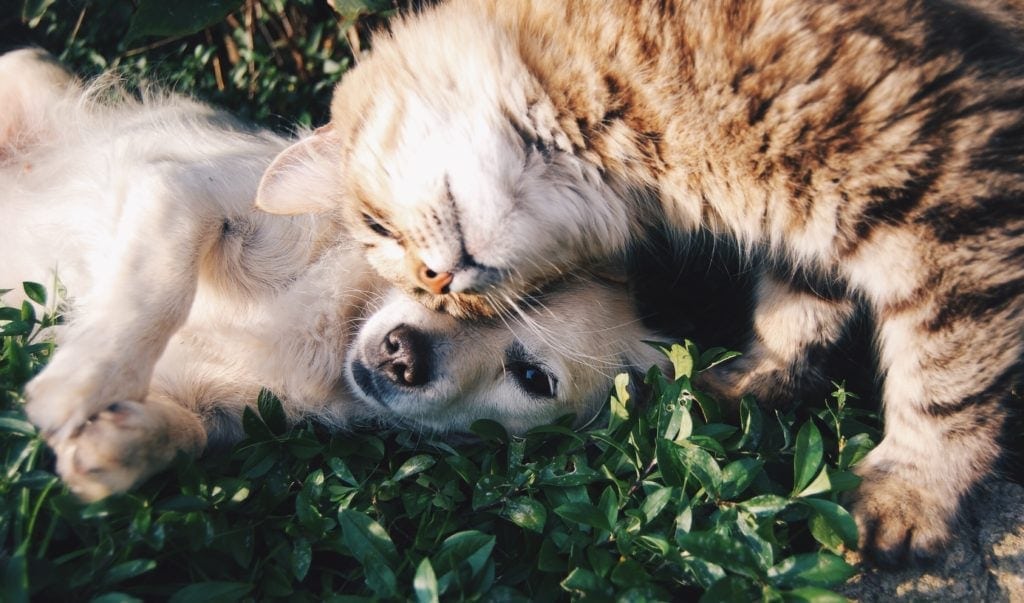BUCKHANNON – Summer is a time of rest and relaxation, but the hot temperatures put animals at a risk of life-threatening conditions. Hot paws and lack of water can result in a trip to the vet’s office.
Like humans, animals can suffer from heat exhaustion, heat stroke and dehydration if exposed to extreme elements without shade and not provided adequate amounts of water.
Fortunately, there’s state and local city laws in place to protect those without voices.
West Virginia’s animal welfare law reads in part that a person must provide proper sustenance, including food and water; shelter that protects animals from the elements of the weather; and medical treatment necessary to sustain normal health and fitness, or they are guilty of a misdemeanor and may face fines and jail time.
The law is not specific as to examples of adequate shelter; however, several municipalities and counties in West Virginia have adopted their own ordinances.
The City of Buckhannon utilizes the city’s Animal Care and Control Ordinance as well as West Virginia Statute 61-8-19 “Cruelty to Animals” that addresses animal safety.
Regarding temperatures, the city ordinance restricts the tethering of an animal when the outdoor temperature is below 32 degrees and above 88 degrees. Tethering restrictions also apply when imminent flooding is within the space of the confined animal – or at times when the National Weather Service has issued a severe thunderstorm, tornado warning or a winter storm warning in Buckhannon.
If an animal is tethered or penned, the animal must have access to shade from the direct rays of the sun.
The ordinance also states that dogs shall not be penned outside during extreme weather unless the pen is equipped to provide adequate protection.
“A doghouse keeps heat in, and during hot weather, a dog house is essentially an oven,” said Robin Keough, animal advocate and co-founder of Luv 4 Animals. “They provide no protection for a dog and that is something a dog owner might not be aware of.”
With the animal cruelty laws in place, the state allows animal control officers to observe and respond to complaint when the shelter is inadequate to the weather and conditions. However, because Upshur County has one animal control officer, the officer relies on input from the community.
“When temperatures are extreme, as in recent days in July, animals are in danger of heat stroke if chained or penned in direct sun, without shade or ventilation,” said Keough. “Recently, a person called me because they were concerned about a dog chained in direct sun and the ACO talked to the owner and the doghouse was moved so that the animal could at least get some shade.”
Keough said she thinks the law is adequate if enforced in the spirit in which it was written.
“It was designed to protect animals. I, personally, do not like to see companion dogs chained,” she said. “I can’t understand why someone would choose to have a pet and chain it and basically let it live a life of solitary confinement. That, to me, is cruel.”
State laws allow law enforcement to act when an animal has been left in a motor vehicle “unattended and confined in a motor vehicle when physical injury to or death of the animal is likely to result.”
In June, the Buckhannon Police Department responded to a call in the Buckhannon Walmart parking lot in regard to a dog in a hot vehicle. According to Buckhannon Police Chief Matt Gregory, a lady was charged with Cruelty to Animals per WV Statute 61-8-19 for this incident.
“In the June incident, the report states that the weather on that day was 91 degrees with a heat index of 85 degrees with only a small opening left in the car’s window,” explained Gregory. “The dog did not have access to water and had been in the vehicle at least 28 minutes. The officer was able to remove the dog and care for it. When the owner came back to the vehicle, she was charged with Cruelty to Animals.”
Buckhannon’s most updated animal care and control ordinance can be found here.
What to do if your pet suffers from heat exhaustion or another temperature-related condition
“During summer dogs need extra water at all times.Dogs do love to accompany their owners for walks and if you think about it, people on hot days usually carry a water bottle for themselves, and hydrate before and during exercise,” said Keough. “They need to be just as careful about giving their pet water breaks and cut back on the amount of exertion.”
The long-time animal lover and former nurse recommends taking shorter walks, especially if the pet is older. Also, pet owners need to be aware of the pavement’s temperature, which can damage paw pads if too hot.
A quick way to measure? If the pavement is too hot on the back of your hand, it’s too hot for an animal’s paws.
“If people are lucky enough to take their dog to the beach, they need to be very careful that the dog does not lap up ocean water,” she stressed. “It is salty and can cause an electrolyte imbalance and kill them.”
Signs of a heat stroke,= include excessive panting, drooling and vomiting.
“He might not ‘act right’ and be uncoordinated or unable to move,” Keough said.
It’s best to take measure to prevent heat strokes in dogs; however, if it happens, Keough said to move the animal into the shade or inside to a cooler place.
“Put a wet towel or blanket under him, sponge him with water, but not cold water or it could cause a shock to him,” she said. “If he can drink a little water, let him drink a little at a time.”
If the dog has collapsed and is unconscious, try to cool him down with water and a fan blowing on him, but contact a vet immediately as the situation can be life-threatening.
Aside from the effects of extreme heat, Keough warned pet owners of the uptick on deer ticks and Lyme Disease the critters carry.
Thanks to the sponsors of Luv 4 Animals, the group uses donations to spay, neuter and test animals for Lyme Disease.
“About half of the dogs have tested positive for the disease,” she said. “It can lead to a lot of pain and disability for the dogs if left untreated. I really would urge pet owners to have their dogs tested for Lyme Disease.”













